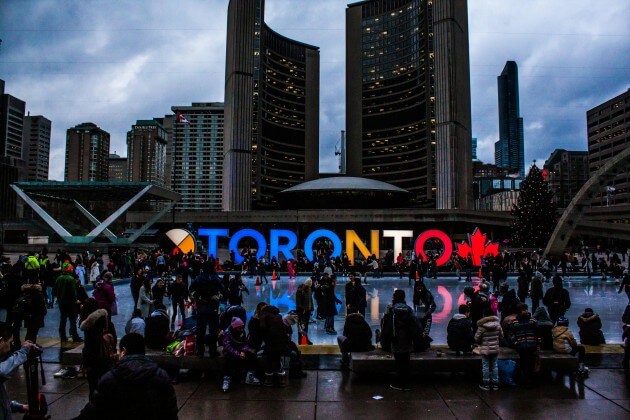How Long Can You Stay in Canada Without A Visa?

Advertisement
Many travelers may wonder, “How long can you stay in Canada without a visa?” Fortunately, for foreigners, there is the option of visiting Canada without a visa for a limited time.
To determine how long you can stay in Canada without a visa depends on your nationality. With Canadian immigration authorities, visitors can stay in the country for up to six months. If you are planning a visit to Canada consider it as a crucial step to check the specific entry requirement and duration for your country at first.
Let’s talk about Canada for a moment before driving through the essence of this topic. The Great White North is well known for its stunning landscapes. Canada is blessed with a diverse culture and welcoming atmosphere for all visitors around the world, Canada has earned a spot on the list of the most visited countries in the world.

Foreigners find it convenient to live in the country because the immigration authority has some policies that affect all levels of immigrants. However, before enjoying all these benefits it’s very important to understand the intricacies surrounding visa requirements.
Advertisement
This article aims to delve into the question based on how one can stay in Canada without a visa.
What are the Visitor Visa Requirements for Canada?
What are the Visitor Visa Requirements for Canada?
To apply for a visitor visa to Canada, you must meet certain requirements set by the Government of Canada.
Below are the basic requirements you too must provide.
● Vaid Passport-sized Photograph
● Complete Application Form
● Evidence of Financial Support
● Intense to Return
● Health and Character Requirement
Valid Passport-sized Photograph
You must have a valid passport from your country. Make sure that your passport remains valid for the period of your intended stay in Canada.
Application Form
You need to complete the Visitor Visa application form, which can be obtained from the official website of Immigration, Refugees and Citizenship Canada (IRCC).
Evidence of Financial Support
You must show that you have the requisite resources to support yourself during your stay in Canada. This includes covering your accommodation, transportation, and daily expenses.
Intent to Return
You must prove that you have strong ties to your home country and that you intend to return once your visit to Canada is complete. This can be done by providing documents such as employment letters, property ownership, or family ties.
Health and Character Requirements
You may be required to undergo a medical examination and obtain a police certificate to ensure that you are in good health and have a clean criminal record.
Application Process
The application process for a visitor visa to Canada typically involves the following steps:
1. Gather Required Documents: Collect all the necessary documents, such as your passport, application form, proof of financial support, and supporting documents demonstrating your ties to your home country.
2. Complete the Application Form: Fill out the visitor visa application form accurately and honestly. Ensure that you provide all the required information and do not leave any sections blank.
3. Pay the Application Fee: Pay the required application fee, which is non-refundable, and may vary depending on your country of citizenship and the type of visa you are applying for.
4. Submit Your Application: Submit your completed application form, supporting documents, and payment receipt to the nearest Visa Application Center or Canadian embassy/consulate in your country.
5. Wait for Processing: The processing time for a visitor visa application can vary. It is advisable to apply well in advance of your planned travel dates to allow for any potential delays.
6. Attend Interview (if required): In some cases, you may be called for an interview to further assess your eligibility for a visitor visa. If requested, make sure to attend the interview and provide any additional documents or information as requested.
7. Receive the Decision: Once your application is processed, you will be notified of the decision. If approved, you will receive your visitor visa, which will be stamped in your passport.
Does Canada Have Visa-Exempt Countries?
To answer this question, it’s important to note that citizens from certain countries do not need a visa to enter Canada for short visits. They enjoy this privilege and are generally classified as visa-exempt.
They are only going to stay in Canada for a fixed period in such a way that their duration of stay is determined at the port of entry by the Canada Border Service Agency (CBSA). The average duration of stay for visa-exempt students in Canada ranges from six months.
The essential duration is to accommodate short-term visits thereby allowing individuals to explore the country without the need for a formal visa application process.
What are Temporary Resident Visas?
If you are coming from a country that is classified as visa-exempt by the Canadian immigration authorities. You must secure a Temporary Resident Visa (TRV).
By doing this, you can stay in Canada without an actual visa. Please note that TRVs last for only six months but they can be extended under exceptional circumstances.
It is also advisable not to fully rely on this extension because it is not guaranteed and is heavily dependent on valid reasons like unexpected emergencies or genuine delays.
Study and Work Permits
You will need to tailor your permits to your reason for living in Canada. It may be to study, work, or tour.
Whatever the reason may be, be sure to apply for the appropriate permits. Also under the rules of study and work permits, and also the potential for serious consequences when exceeding the authorized duration without proper extensions.
Are There Extended Stays and Permanent Residency?
They are also the provisions for extended stays and permanent residency in Canada but the process of obtaining them is not as easy as they seem to be. To get this, applicants need to explore the pathways beyond the standard visitor Visa.
You can utilize these pathways in the right way by understanding how Canada provides several immigration programs to cater to skilled workers, entrepreneurs, and family reunions.
Initiating the appropriate application and leveraging this opportunity is the best way to secure a permanent residency or extended stay even if you’re previously staying in Canada without a visa.
Frequently Asked Questions
What happens if you stay longer than your visa in Canada?
Staying too long on a visa can bring many problems. It might make you lose your current rights and status, and even prevent you from becoming a permanent citizen of Canada.
How to get permanent residency in Canada?
To live in a specific province or territory, you need to apply and be nominated there. Once nominated, you can then apply to the IRCC for permanent residence.
Can an overstay be forgiven in Canada?
Canada’s immigration laws may be lenient in specific cases, and seeking legal advice is crucial. If you’re facing such a situation, we can guide you on whether applying for permanent residence based on Humanitarian and Compassionate grounds could be a suitable solution for you.
Conclusion
Understanding the rules and regulations for visa-free travel to Canada is vital for a successful and enjoyable trip. For citizens of visa-exempt countries, a stay of up to six months is typically permitted.
However, it is crucial to check the specific requirements for your country of citizenship and to apply for an eTA before your departure. If you need to extend your stay in Canada, make sure to initiate the process before your authorized stay expires.
By being well-informed and prepared, you can confidently enjoy your time in Canada without a visa and make lasting memories.
Advertisement